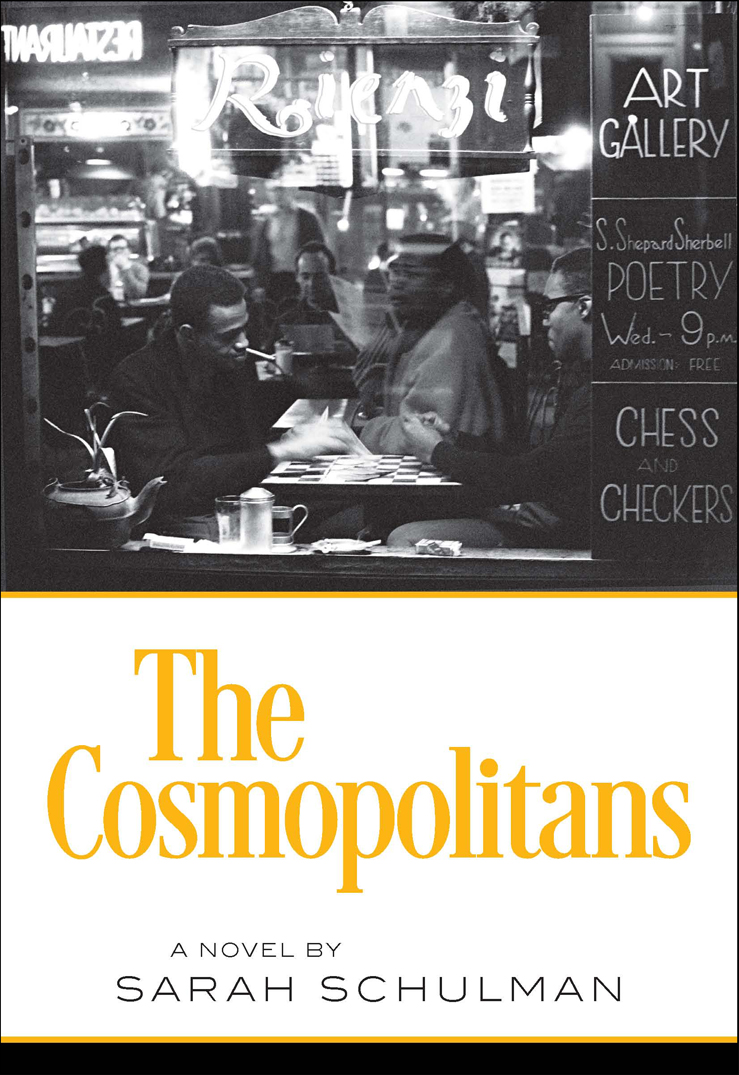
The Cosmopolitans
A Novel
کتاب های مرتبط
- اطلاعات
- نقد و بررسی
- دیدگاه کاربران
نقد و بررسی

Starred review from January 11, 2016
With a plot and characters inspired by Balzac’s Cousin Bette, the latest from novelist and nonfiction writer Schulman (After Delores) is intended in part as a feminist response to James Baldwin’s Another Country. Like its realist forebears, the novel offers a rich evocation of its time and place—in this case, Greenwich Village in 1958. Earl, a gay, black aspiring actor, and Bette, a straight, white secretary at an ad agency, have been neighbors and best friends for years, creating a relationship out of shared loneliness (whether it’s the result of their race, gender, or sexuality), one that for Bette, at least, seems fulfilling. But the unexpected arrival of Bette’s vivacious young cousin Hortense offers Bette an unpleasant reminder of the scandalous past that caused her to flee her Midwestern upbringing decades earlier. Earl, who longs for a kind of love that Bette just can’t provide, seizes an opportunity presented by Hortense, also an aspiring actor, setting in motion a series of betrayals that drive a wedge between Bette and him for the first time. Simultaneously a realist exploration of a particular milieu, an illustration of the changing roles and possibilities for women at that time, and a series of thoughtful musings on the nature of companionship and platonic love, Earl and Bette’s story is also a satisfying revenge narrative and a portrait of an unexpected but vital friendship. Agent: Mitchell Waters, Curtis Brown.

Starred review from January 1, 2016
Style and setting allow some beauty to intrude on this story of love, loss, and how low one might stoop to right a wrong. Bette lives alone in Greenwich Village, stewing over her family's rejection and denial of a grave betrayal. Across the hall, Earl struggles to find work as an actor; in 1958, being black restricts his choices, and being gay means hiding even more of his desires. These two form a family of sorts as later middle age approaches, but when Bette's cousin Hortense enters their lives, the initial novelty festers into something grim. Schulman (The Mere Future, 2009, etc.) takes chances with style and structure. The word jazz that pops and crackles in occasional street scenes is overlaid with what she describes in an afterword as the stilted British voice that marks many works in translation. She also writes herself into the story as the squalling newborn down the hall; her crying precipitates a vital scene. Bette's integrity quickly comes undone when she feels she's been wronged (by Earl and Hortense but also by her family back home), and her work in the evolving field of television advertising offers her a thoroughly modern set of tools with which to wreak destruction. There are times when her manipulations are hard to watch yet impossible to turn away from; her victories, though hard-won, are full of contradictions, and Earl's actions are no less complicated. Yet all this drama is grown from shared cups of tea, poetry, and late-night conversations, commiserations about jobs and romance, the long roots of an established friendship. It testifies to the elegant construction of the novel that it can balance the hopes of an entire era on the backs of a fragile relationship and leave no doubt as to its resilience. Jarring and beautiful, this is a modern classic.
COPYRIGHT(2016) Kirkus Reviews, ALL RIGHTS RESERVED.

December 1, 2015
Midwesterner Bette fled Ohio after her lover, Frederick, broke her heart when she was 20 years old. Thirty years later, middle-aged Bette is living in Greenwich Village and still hoping to reconcile with Frederick. It's 1958, and the village is home to a mix of working-class and bohemian residents. Bette lives a quiet life, working as a secretary and spending her evenings reading, talking, and listening to jazz with her neighbor and only friend, Earl. Earl is a 50-year-old gay African American actor with a day job in a slaughterhouse. While Bette is resigned to her solitude, Earl still hopes to find love. The novel takes a dramatic turn with the arrival of Bette's cousin Hortense. An aspiring actress, Hortense left Ohio after discovering that her father, Frederick (yes, Bette's Frederick), was having an affair. VERDICT The novel is written in a stilted style Schulman describes as "Britishized American English" that is used to disrupt the false neutrality of contemporary literary fiction. Both the author's subjects and style exist outside of the dominant narratives of U.S. literature and will appeal to readers of contemporary literary fiction looking for something new.--Pamela Mann, St. Mary's Coll. Lib., MD
Copyright 2015 Library Journal, LLC Used with permission.

























دیدگاه کاربران